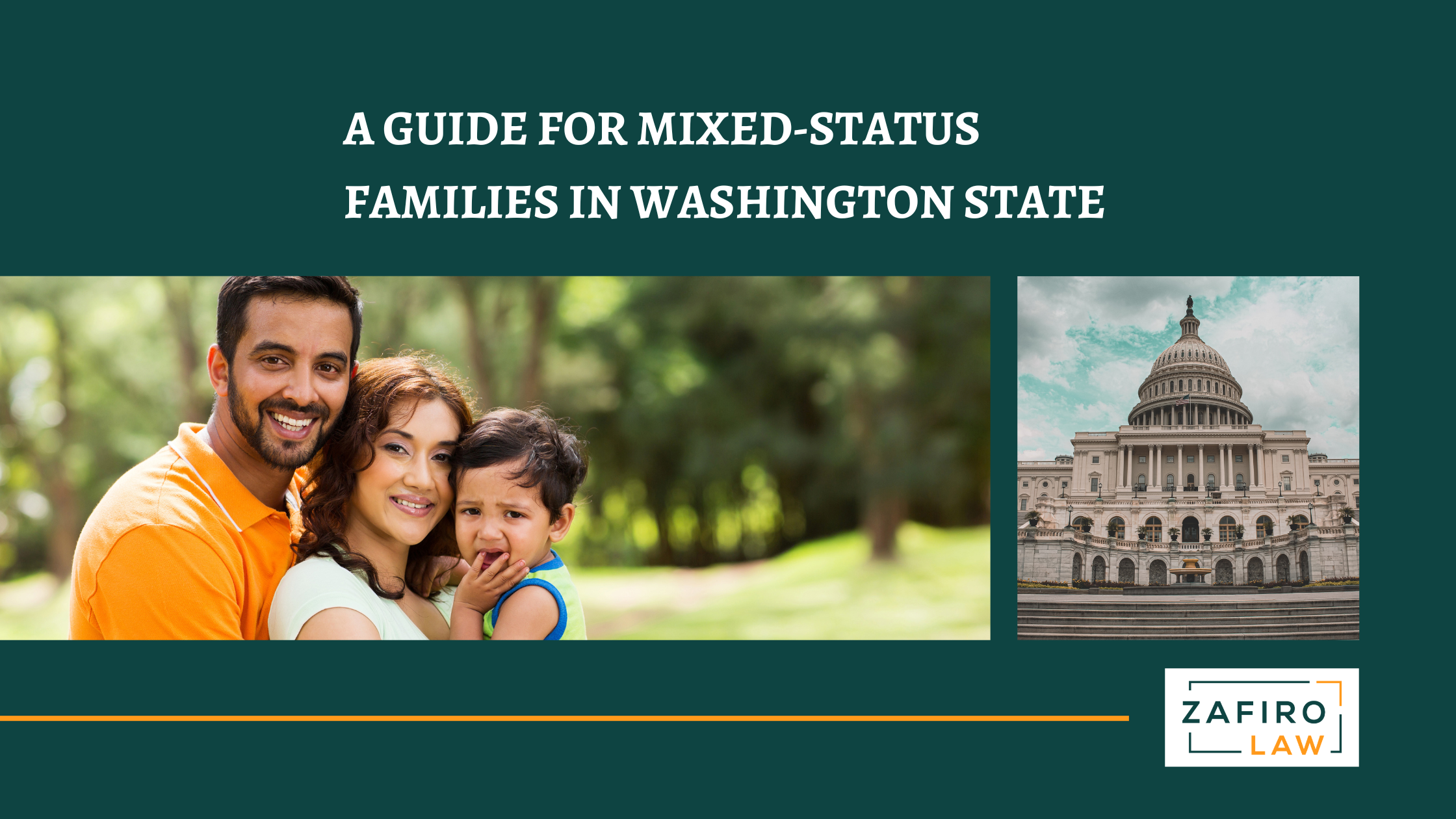Mixed-status families have members with different immigration statuses. This means some members might be U.S. citizens, while others could be on visas or without legal documentation. This will create unique challenges. Understandably, these people are forced to live with many uncertainties. For example, they may be concerned that their family could be divided if one member’s immigration status changes. Also, basic tasks like getting a job, attending school, or seeking medical care can become complex.
The desire for a united, stable life might feel out of reach for them because of how complex the immigration laws are and how long it takes to get a visa or become a legal permanent resident. This adds tremendous stress and pressure on mixed-status families. At its core, a mixed-status family seeks peace and security like any other family in America.
Mixed-Status Families
At the core of mixed-status families is a desire for unity and stability. Many of these families simply want to build a life in this country and provide for their families while not living with the constant threat of deportation. Furthermore, they are determined to ensure their children have opportunities to do the same, just as any American child would.
However, reaching these dreams often requires a basic understanding of our immigration system. The rules can be complex, and the stakes are high. So, what are the available paths for these families? What options lie ahead for parents and their children to establish a secure footing in America? Let’s look into some of the immigration options for parents and children of mixed-status families.
Immigration Alternatives for Parents
Adjustment of Status: This avenue is open to those married to a U.S. citizen or a lawful permanent resident. However, it’s a journey that could last from a few months to several years.
Family-based Immigration: Those with a family member who is a U.S. citizen or a lawful permanent resident can explore this option. The waiting period is variable and can extend from years to even decades.
Temporary Protected Status (TPS): TPS is designed for individuals from certain countries undergoing temporary crises. This type of status grants people an additional period of time in the United States. After that time has expired, extending it is possible if the conditions in their home country are still dangerous.
Immigration Options for Children
U.S. Citizenship: Being born on American soil automatically ensures a child’s U.S. citizenship.
Family-based Immigration: Our immigration policy changed in 1965 with the Immigration and Nationality Act. It allows U.S. natural-born citizens and lawful permanent residents to sponsor specific family members from abroad. Family members can obtain visas such as the Immediate Relative Visa for close family members of U.S. citizens, the K-1 Fiancé(e) Visa for those engaged to U.S. citizens, and the V Visa for families waiting for immigration visa processing.
Special Immigrant Juvenile Status (SIJS): This program is tailored for certain undocumented immigrants who’ve faced neglect, abuse, or abandonment. It provides a potential pathway to permanent residency.
Deferred Action for Childhood Arrivals (DACA): This option is for those who entered as minors are still minors. This program not only offers a two-year deferment from deportation, but it also makes them eligible for a work permit.
The Effect on Parents and Children
Achieving legal status goes beyond documentation. It brings peace of mind to parents and children, allowing them to function without fearing sudden deportation. Moreover, it unlocks access to essential elements, including education and financial aid opportunities.
For divorced parents, if the father remarries and achieves legal status, the new spouse might be eligible to petition for the stepchild’s immigration status. However, this process requires the father’s concurrent filing, potentially lasting from 8 months to over two years. Significantly, immigration statuses do not interfere with the fundamental rights of parenthood.
Take the Next Step
Living in a family with mixed-status families can sometimes be overwhelming. Consider scheduling a consultation for a clear understanding and a personalized roadmap tailored to your unique situation. At ZafiroLaw, we deeply understand the immigrant experience. We recognize the nuances of how family law and immigration statuses can intersect. Our commitment is to provide clarity and direction in both family and immigration law matters, guiding you every step of the way.


